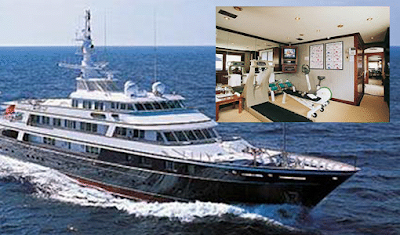(6) SIX WAYS TO INVEST:
By: Margaret Steen
In uncertain economic times, you may hesitate to spend money to advance your career. But some investments -- of money and time -- can really pay off.One of the main ways to invest in your career is through education.
"Don't think of it as going back to school, which sounds like you didn't get it right in the first place and doesn't feel good," said Libby Pannwitt,
principal of the Work Life Design Group, in San Carlos, California. Instead, think of it as a way to broaden your knowledge.
Here are three ways to invest in you career through education, plus three other career investments to consider:
1.) * Get a degree.
- Complete your bachelor's degree or get a master's degree, MBA or even a Ph.D.
- Technical fields, project management and human resources are just some fields in which certifications can help advance a career. Certifications are generally less time-consuming and expensive than degree programs.
- If you're working outside your native country and not speaking your native language, consider taking classes in accent reduction and American business etiquette. How do you know if you need these classes? If you're lucky, your boss will tell you. But you may simply notice that you're not getting promoted to positions that require good communication skills. For native English speakers who were raised in the United States, learning about the business culture of other countries can help further your career, Wilson said.
- This requires more time than money, although some services may cost you.Own your own domain name and create a Web page to showcase your work, Wilson said. Keep updated profiles on Facebook, LinkedIn and other social networking sites. Monitor your online presence so that potential employers won't find anything derogatory about you.
"Being branded online may be on the cutting edge now, but it's going to be a given in five years," Wilson said.
- It's important to have people to help you make critical decisions in your career.For some people, a paid career counselor or coach is the best approach. Others have one or more mentors who offer informal advice. Which approach is best may depend on how much in-depth help you need.
"Some you pay, and some are free," Wilson said.
- Professional associations require both time and money, but they are a good way to meet people in your industry who work for other companies.
"By serving on a committee or a board, you will gain valuable, marketable leadership experience to parlay at your next job interview," Pannwitt said.
Ten Great 'Second Act' Careers
F. Scott Fitzgerald once wrote that there are no second acts in American life, but Fitzgerald didn't live in today's economy. Given the dynamics of the modern job market, second careers can be even more important -- and rewarding -- than the first ones.
Career prospects are constantly shifting.
Downsizing and outsourcing close some doors, just as demographic trends and new technologies open up others. If you have lost your job or feel dissatisfied with your current career, how you redirect yourself toward better opportunities?
The answer starts with training and education. The good news is that with online learning and adult education programs, there are more opportunities than ever to prepare yourself for a second career.
To make sure that preparation pays off, you need to focus on the following types of careers:
Those where people are now in demand, so you can get on your new career track as quickly as possible, and
Those with good long-term prospects, so you are less likely to be facing another round of retraining five or ten years down the line.
With this background in mind, the list below reviews ten in-demand occupations that could make a great second act for your career.
1. Medical Assistant
In terms of long-term career prospects, the healthcare profession benefits from a powerful demographic trend: the aging of the American population. As baby boomers enter retirement, demand for health care is expected to steadily rise. This is why medical assistant is expected to be one of the fastest-growing occupations over the next several years. Another advantage: many people get into this career with just a year or two of specialized education.
2. Personal/Home Health Aide
While medical assistants typically work in physician's offices, personal/home health aides visit patients in their homes to assist with a variety of tasks. Training programs, both in-person and on-line, are plentiful, and since many personal/home health aides work part time, this is a viable choice if you have to juggle your new career with family or other responsibilities.
3. Mental Health Counselor/Social Worker
Not only is Alzheimer's disease creating more challenges as the population ages, but behavioral conditions such as autism are becoming more common as well. As with most health care occupations, this is hands-on work that cannot be readily outsourced. A mental health counselor or social worker may require a background in psychology -- often a bachelor's or master's degree -- which can be obtained either on-campus or on-line.
4. Network Systems and Data Communications Analyst
Shifting from health care to the information technology field, it is important to identify on-site functions which cannot be easily outsourced. Network systems and data communications analysts are indispensable to mid-sized and large organizations, as they configure, install, upgrade, and maintain information technology and telecommunications systems. For this field, you will want to pursue a bachelor's degree in information technology or telecommunications.
5. Computer Software Applications Engineer
While many routine programming jobs have been outsourced overseas, a continuing strength of the U.S. software industry is the creation of new applications. To become a computer software applications engineer, you may want to get some practical experience along with pursuing a bachelor's degree in computer engineering or computer science.
6. Teacher
This is another good career choice because of its in-person, hard-to-outsource nature. Becoming a teacher will require specific educational credentials, but it's a good second career because maturity and experience -- possibly including experience with children of your own -- are strong assets.
7. Paralegal/Legal Assistant
Paralegals and legal assistants do research and perform tasks that support the work of attorneys. The interaction involved makes this another occupation that would be difficult to outsource to a remote location. There are many educational programs, both on-campus and on-line, offering legal training, though the National Federation of Paralegal Associations recommends those entailing at least 18 semester credit hours of paralegal coursework.
8.Financial Services Professional
Working in financial services will take a substantial educational commitment -- a bachelor's or masters degree, and possibly professional certifications and state or federal licensing. However, the financial rewards of this field can be well worth the investment.
9. Accountant and Auditor
Recent regulatory trends have made accountants and auditors more in demand than ever. This field carries the same type of professional requirements as financial services, but it can be a good second career because some clients feel more comfortable discussing their finances with more mature individuals.
10. Employment Services Counselor or Recruiter
If there is one thing this economy has proven, it is that the employment picture is in a constant state of change. No one knows this better than someone who is contemplating a second career. This type of job market creates demand for employment services professionals, such as career counselors or recruiters. An educational background, preferably including a bachelor's degree, in human resources or personnel would be helpful for this field.
When choosing an educational program that will prepare you for a second career, it can be helpful to ask some hiring managers in the field what credentials they look for when recruiting. Also, be sure to check out the accreditation of any institution you go to for education, especially if you are pursuing a degree.
by Richard Barrington






















 >
>


























































No comments:
Post a Comment